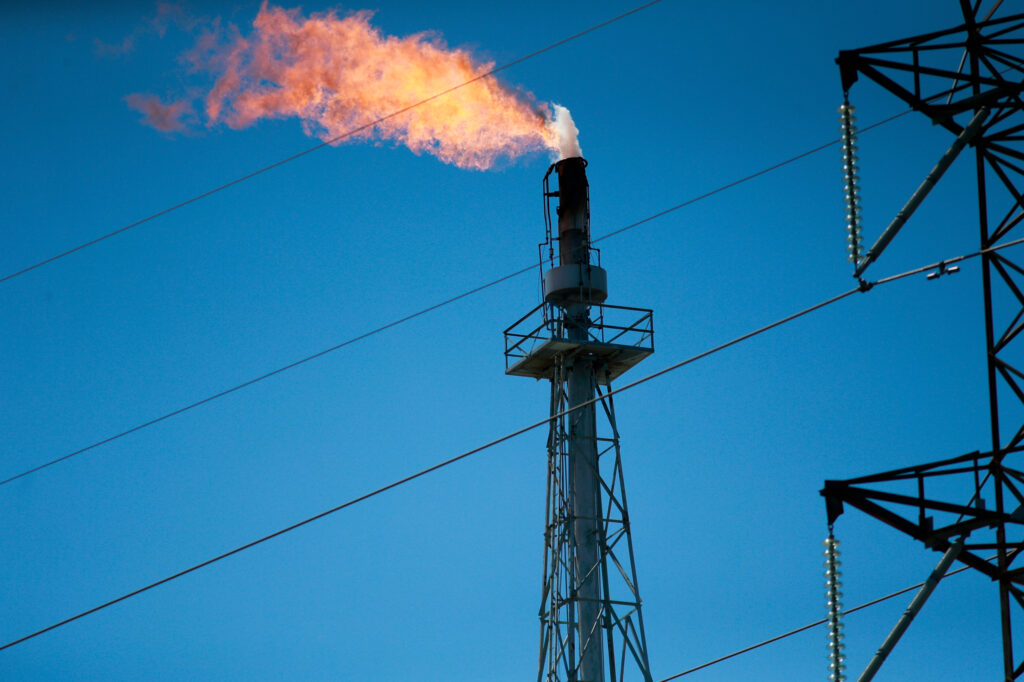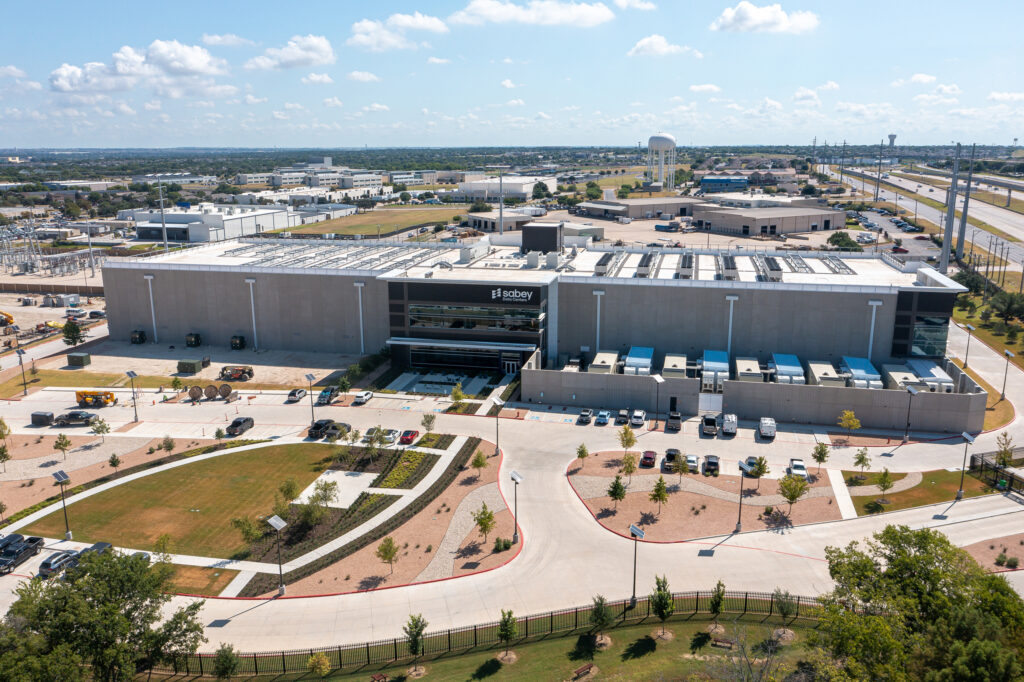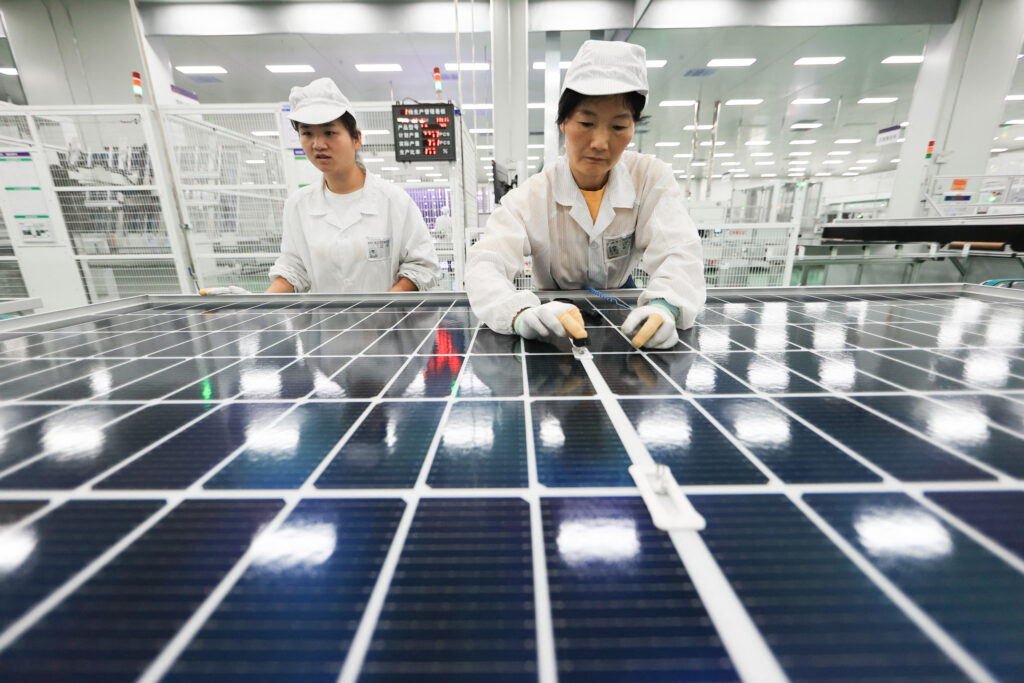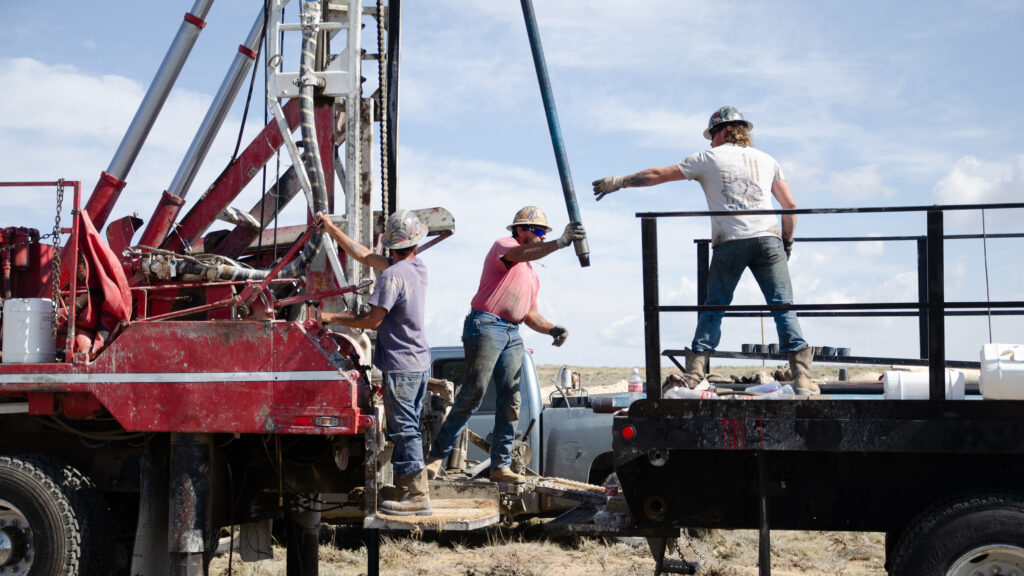FRAMINGHAM, Mass.—After years of planning and months of drilling, a first-in-the-nation, neighborhood-scale geothermal heating and cooling project came online here on Tuesday.
Geothermal energy—using the steady temperature below ground—to heat and cool buildings is nothing new. What’s new in Framingham is the fact that climate advocates and a utility company, Eversource, devised the plan together.
“There’s no one entity that’s going to solve this climate crisis alone,” said Nikki Bruno, vice president of clean technologies for Eversource, who also acknowledged the unusual nature of a partnership between a utility and a climate advocacy group. “We have to work as a team, and I think this project has shown that working together gets you somewhere faster and in a better way.”
We’re hiring!
Please take a look at the new openings in our newsroom.
See jobs
Rather than build individual systems, the Framingham project ties together 31 residential and five commercial buildings that now share the underground infrastructure needed to heat and cool them. This shared system has been used in places like college campuses, for example, but never before has a utility installed geothermal across a neighborhood in the United States.
“It allows the energy transition to be ramped up, because we’re not going house by house, we’re going neighborhood by neighborhood,” said Priya Gandbhir, senior attorney with the Conservation Law Foundation, based in Boston.
Perhaps more importantly, it may offer a new lease on life for gas utilities without squeezing low income individuals.
Massachusetts has to stop burning fossil fuels to heat buildings if the state is going to meet its greenhouse gas emission reduction requirements, something the Department of Public Utilities underscored in December in a new regulatory framework to transition utilities off of natural gas.
One way for homeowners to stop burning fossil fuels is by installing air-source heat pumps that pull heat out of the surrounding air, like an air conditioner run in reverse. But installing such devices can be costly, and navigating government incentive programs can be challenging.
“If we only have the people who can afford it, who have the know-how transitioning, it’s kind of spotty,” said Ania Camargo, thermal energy networks manager at the Building Decarbonization Coalition, a nonprofit working to eliminate fossil fuels from buildings. “It’s an unmanaged transition that creates a negative feedback loop with fewer and fewer people left on the gas system to cover all of the fixed costs. If that happens, then the price of gas goes way up and you have what they call a utility death spiral.”
Geothermal heating built and maintained by utility companies could offer a future for the companies, and their employees, without leaving low income families on the hook for maintaining an aging gas system.
Eversource’s $14 million project, which broke ground in June 2023, pulls thermal energy from approximately 90 boreholes or wells drilled 600-700 feet underground, where temperatures are a steady 55 degrees.
A mix of water and antifreeze flows through a mile-long loop buried just belowground and descends into the wells, where it is heated or cooled, depending on time of year. The pipe network then connects to a heat pump inside each building that extracts additional heat from the water to warm the buildings in winter, or transfers heat from the buildings into the water to cool them in summer.
The system is similar to air-source heat pumps but is vastly more efficient because the underground temperatures are warmer than outdoor air in winter when heating is needed and cooler than outside temperatures in summer when cooling is required.
“I think of the Earth as a big battery,” Bruno said. “This is the most efficient way to heat and cool your home.”
Approximately 135 customers are connected to the system, including low- and moderate-income customers, single family homes, Framingham Housing Authority apartment buildings, a gas station and the Corner Cabinet, a kitchen and bath cabinet showroom..
Gina Richard, the owner of Corner Cabinet, said she felt “pretty lucky” to be part of the project, the Associated Press reported. She currently uses two air conditioners and two heaters and looks forward to replacing all that with a single system. Richard said she was told she could see her winter heating bill of $900-$1,000 go down by as much as a third, which she said would be “amazing,” the AP said.
“This is a really promising tool in our toolbox on our road to decarbonization,” Massachusetts Energy Secretary Rebecca Tepper said in an interview with Inside Climate News.
Gas and electric utility National Grid is developing a similar geothermal pilot project in Lowell and has announced plans for a second project, with the Boston Housing Authority, in Dorchester.
In April, New York State’s Department of Public Service approved nine additional utility projects that could draw thermal energy from underground boreholes, wastewater or surface water.
A total of 13 states, including Massachusetts and New York, are considering pilot projects or advancing legislation that would allow gas utilities to develop networked geothermal heating and cooling.
For Audrey Schulman, the co-founder of HEET, a nonprofit climate advocacy and research organization based in Boston that first proposed geothermal projects to the state’s gas utilities in 2017, Tuesday’s commissioning was a dream come true.
“This is a greater impact than I could ever have imagined,” Schulman, now executive director of the recently formed HEET spinoff, HEETlabs, said.
Part of what makes geothermal systems appealing is that they use far less energy than other sources of heating and cooling.
For every one unit of energy put into a gas boiler, for example, less than one unit is produced because some of the heat is lost when it goes up the chimney or exhaust system.
With an air-source heat pump, energy is used to move heat, drawing heat into a building in the winter and out of a building in the summer. For every one unit of energy used, you get
between two and three units of heating or cooling, Schulman said.
“With networked geothermal, for every one unit of energy used, you can move into your building six units of heat, or move six units of heat out of your building if it’s summer,” Schulman said.
Part of that high efficiency comes from combining different types of buildings with different heating and cooling needs into a single network. Ice rinks and grocery stores, for example, need to keep their ice surfaces and refrigerated sections cold even in winter.
However, for networked geothermal to take off, state laws will need to be updated to allow utilities to own, operate and sell thermal energy to their customers, climate advocates say.
Current regulations require gas utilities to provide gas service, a costly and likely unnecessary expenditure if the utility company is also providing geothermal heating and cooling for the same customers.
A bill currently being considered by the state legislature would amend existing rules to allow gas utilities to provide thermal energy, not just gas.
This story is funded by readers like you.
Our nonprofit newsroom provides award-winning climate coverage free of charge and advertising. We rely on donations from readers like you to keep going. Please donate now to support our work.
Donate Now
“It would allow gas utilities to become thermal utilities,” Camargo, of the Building Decarbonization Coalition, said.
Meanwhile, Eversource and HEET are already working on how to expand Framingham’s geothermal system.
In April 2023, HEET, Eversource and the city of Framingham received a $715,000 grant from the U.S. Department of Energy to begin designing an expansion of the geothermal heating and cooling system before the initial project even came online. The groups may be eligible to apply for additional federal funding of the potential expansion project later this year.
“We are already working,” Eversource’s Bruno said of the geothermal system in Framingham, “on version two of this loop.”

















